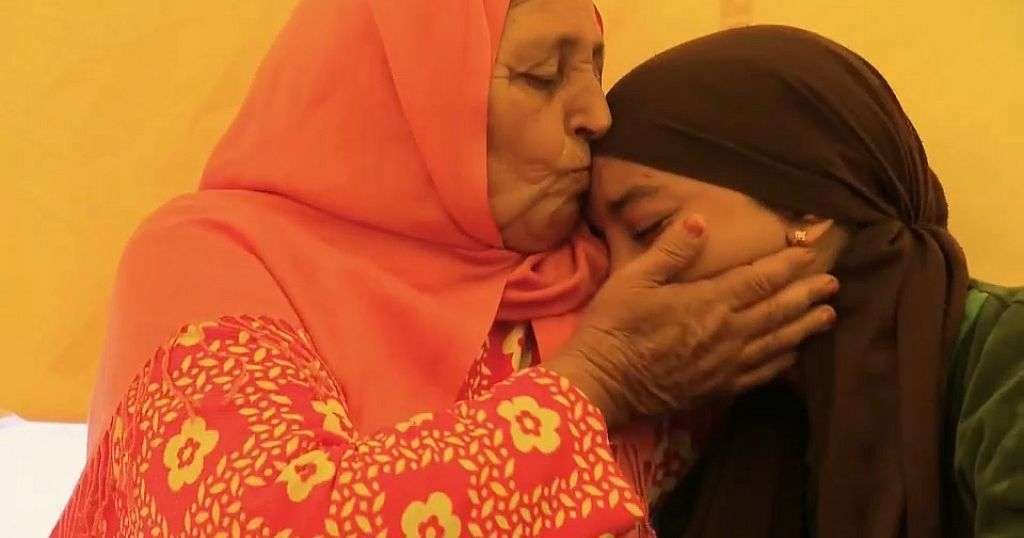Diaspora, Africa – (African Boulevard News) – Moroccan children are facing deep trauma after a devastating earthquake struck their communities. The emotional toll on these young minds is compounded by the loss of loved ones and the destruction of their homes. For children like Ibtissam Aït Iddar, a 9-year-old girl, the earthquake not only shook the ground beneath her feet but also shattered her world.
Ibtissam shares her heart-wrenching experience, “With Mouna and Zineb, we went to school together, even if we were not in the same class. They were my friends. Now they are gone.” Ibtissam’s story is just one among countless others of children who have lost friends, family members, and neighbors in the disaster.
The earthquake, measuring a magnitude of 6.5, struck the northern region of Morocco, leaving a trail of destruction in its wake. Buildings collapsed, roads were ripped apart, and entire neighborhoods were reduced to rubble. The loss of infrastructure and shelter has not only disrupted daily life but has also left many children without a safe space to heal and recover.
Child psychologists and experts emphasize the urgent need for support and intervention to address the psychological fallout from the earthquake. Dr. Fatima Zahra, a child psychologist, explains, “Children are incredibly vulnerable during such traumatic events. They may experience symptoms of anxiety, depression, and sleep disturbances. It is crucial to provide them with a sense of stability and create safe spaces where they can express their emotions.”
Humanitarian organizations and local authorities have mobilized to provide immediate assistance to affected communities. Emergency shelters, medical aid, and psychological support services have been set up to alleviate the suffering of the affected children. These efforts aim to rebuild their shattered lives, both physically and emotionally.
It is essential to remember that children are resilient but require the right support to recover from trauma. Beyond immediate relief efforts, long-term initiatives are crucial to ensure their well-being. Education and play-based therapies play a vital role in helping children process their emotions and regain a sense of normalcy.
As communities work towards reconstruction, the focus must be on holistic recovery. Dr. Zahra emphasizes the importance of community involvement, stating, “Beyond individual interventions, we must also support the community as a whole. Creating a sense of solidarity and rebuilding social connections is essential for the healing process.”
The road to recovery for these traumatized Moroccan children may be long, but with collective efforts and an unwavering commitment to their well-being, they can rebuild their lives. Let us stand together, embracing these young survivors with compassion and providing them the support they need to overcome the scars left by this devastating earthquake.
Sources:
– Africanews: [URL: https://www.africanews.com/2023/09/14/moroccan-children-traumatized-by-earthquake/]
– Google search: [URL: https://www.google.com/search?q=Moroccan+children+traumatized+by+earthquake]

